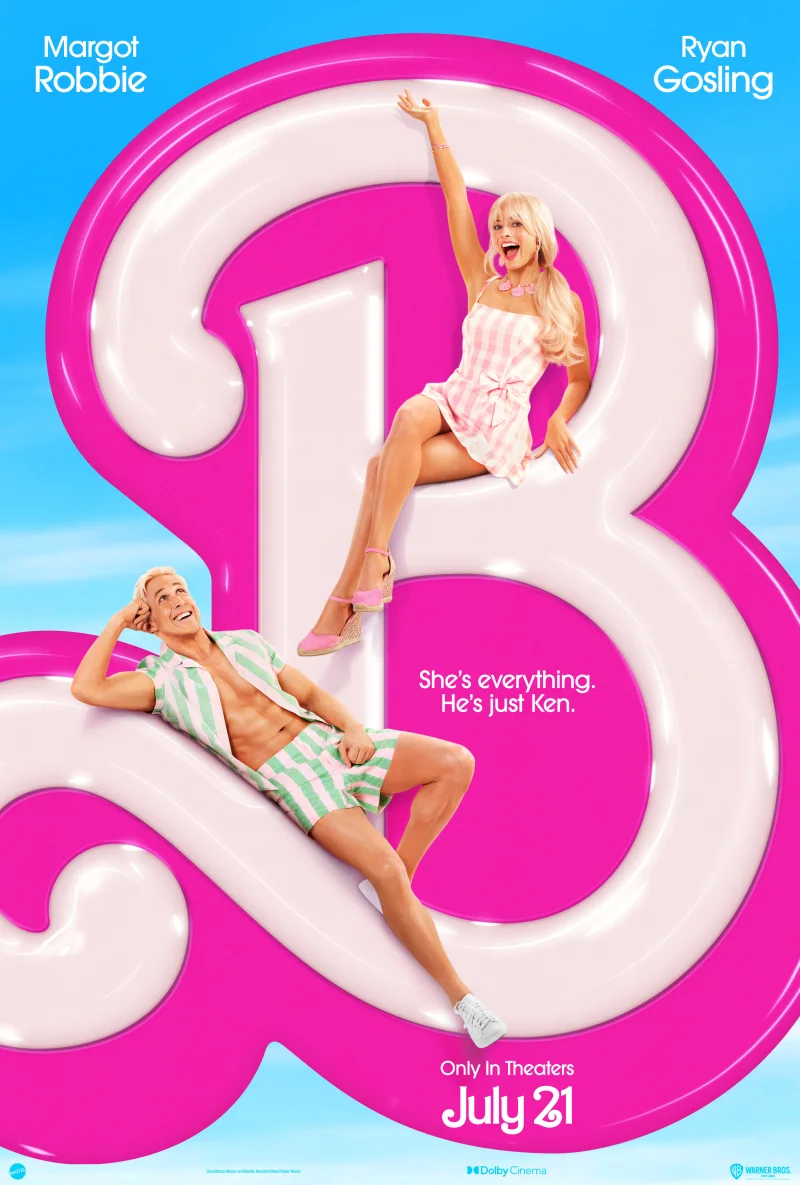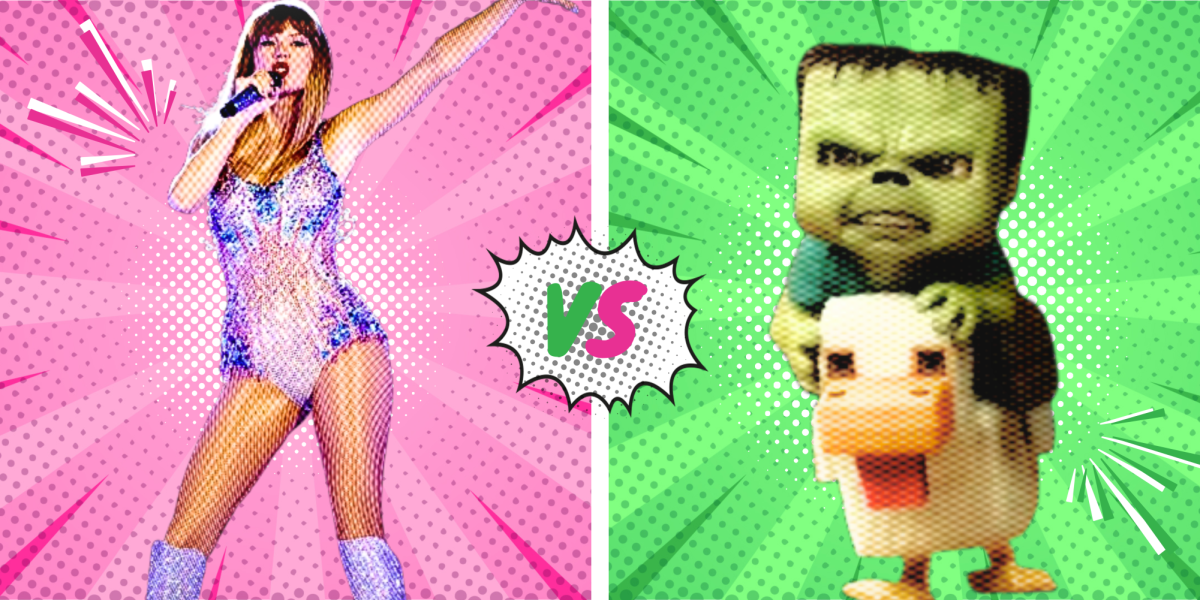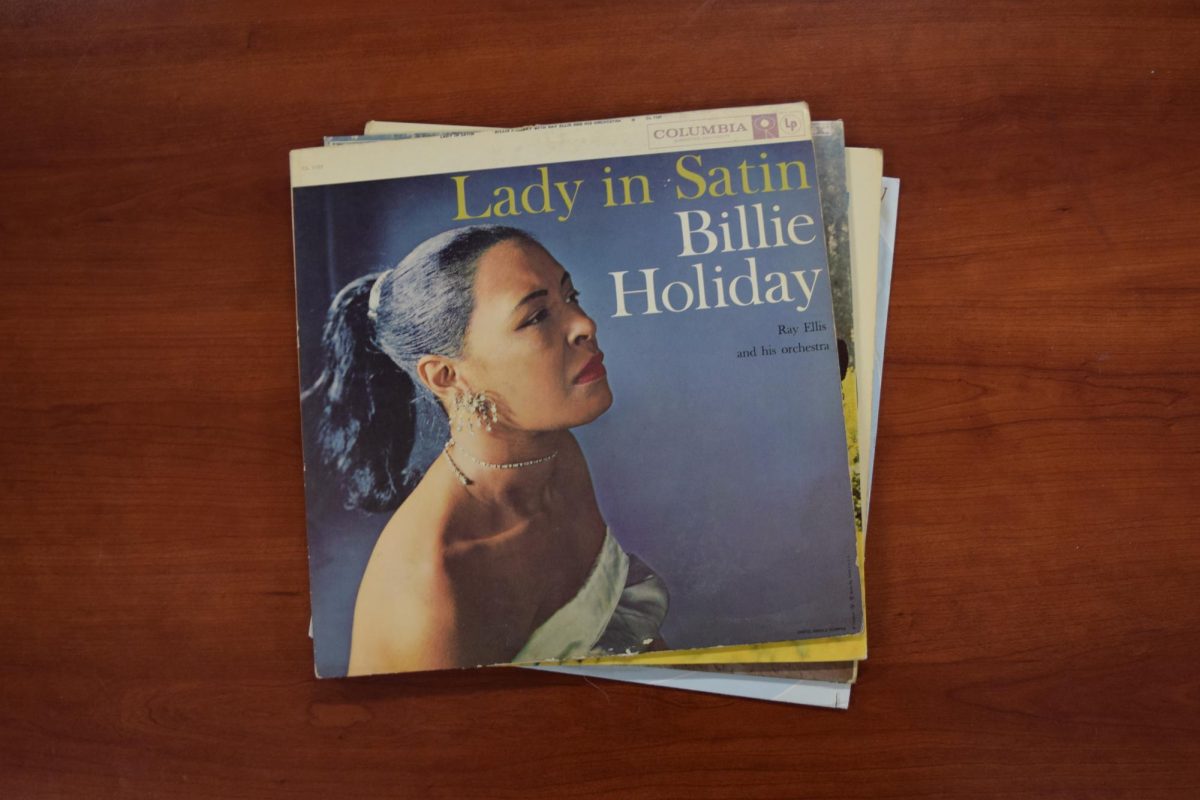WARNING: The following article contains spoilers to Greta Gerwig’s Barbie.
Greta Gerwig’s Barbie really was a movie meant for everyone, and though it wasn’t revolutionary, it’s clear why it had such a moving impact on its audience. Gerwig chose to open Barbie by replicating the first scene in Stanley Kubrick’s 2001: A Space Odyssey. Instead of apes and bones, however, we initially see little girls playing with baby dolls. This all changes when Stereotypical Barbie (Margot Robbie) falls from the sky, like how the monolith appeared before the apes in 2001. Gerwig did not only choose to mimic Kubrick’s film to imply that like the monolith, Barbie would be forever groundbreaking for all humankind, but to also show how her comedic film will address themes of existentialism in comparison to masterpieces that have in the past.
After the arrival of Robbie’s Barbie, the audience is shown Barbieland, where all the Barbies and Kens reside. The Barbies seem to run Barbieland while the Kens’ day-to-day purpose is to compete for the Barbies’ attention, including Stereotypical Barbie’s counterpart, Ken (Ryan Gosling.)
Everything in Barbieland is seemingly perfect until Barbie starts having strange incidents and thoughts of death, unlike anyone else in Barbieland. This is linked to the emotions and troubles of whoever is playing with Stereotypical Barbie in the real world. With Ken in the back seat trying to gain her attention, Barbie begins to travel to the real world to fix what has been disrupting her perfect life.
Gerwig uses the real world to critique aspects of our modern society, and most of these connotations, like the patriarchy, were crystal clear. I was shocked to see that her critique of capitalism, which was more subtle in comparison, was underappreciated by the audience. Gerwig argues how ideas or products made to be meaningful are instead exploited, with profit being its new purpose. Though this was a potentially harder concept for her younger audience to grasp, she still perfectly gets her point across by embodying this message through the Mattel businessmen.
Initially, the person behind Barbie and the Mattel business was a woman named Ruth Handler (Rhea Perlman). In the movie, though, Handler lost a lot of influence over Barbie to men like the Mattel businessmen. The Mattel businessmen even made Handler’s remote workspace in the building a kitchen, implying that that is where a woman is most helpful. But Handler embodies so much more than that. She made Barbie with the purpose of inspiring little girls everywhere to dream big. But when the Mattel businessmen dismiss Handler from the business, they dismiss what Barbie embodies as well. Instead, the Mattel businessmen made Barbie’s purpose go from meaningful to profitable.
This depiction of the effects of capitalism isn’t exactly radical, but what’s impressive about it is just how accurate Gerwig’s argument proved to be once the movie was released. Not only were the Mattel businessmen mocked for being money-hungry and morally lacking, but they were also portrayed as stupid. However, the company did not react to the movie’s messaging after it was released, and that’s the exact reason Gerwig critiqued capitalism – it doesn’t matter what the consequences are as long as big corporations are making a financial profit from it. Mattel undeniably did profit from Barbie with an estimated $100 million in revenue alongside a release of a plethora of Barbie merch.
Aside from capitalism, a more obvious critique showcased in the real world was of the patriarchy. Upon their arrival, Barbie and Ken are instantly welcomed by catcallers and a male-dominated reality. It becomes clear that Barbie’s worst nightmare and Ken’s greatest dream stand true in the real world; Men have all the power. After their separate realizations, Barbie sits on a bench and tearily people-watches.
This scene was Barbie’s first time seeing a range of the beauty and flaws that humanity consists of, something that is totally lost in the perfect utopia of Barbieland. Barbie turns to an elderly woman (Ann Roth) and looks into the eyes of someone who has truly lived, whose wrinkles and age serve as proof of a life fully spent. For the first time since her thoughts of death, Barbie is no longer frightened but sees the meaning behind mortality. Smiling, Barbie tells the elderly woman she is beautiful.
Meanwhile, Ken basks in this male ran world. After feeling so impotent in Barbieland, Ken is quick to accept his role in the patriarchal reign men have. He begins to idolize the patriarchy, or at least, what he thinks the patriarchy is; men, and horses, with power. Ken returns to Barbieland and makes the Barbies subservient. Even at his most antagonistic point in the movie, Ken is still portrayed as misguided and naive to what patriarchy even is. He later admits to Barbie that he only turned to the patriarchy because of the horses and his insecurity about who he was without Barbie when he’s “just Ken”. Gerwig highlights how the patriarchy manipulates men, like Ken, by forcing them to act like “real men” and abandon any sense of personal identity. Even in a movie titled Barbie, Ken gets to discover his identity and how he’s “Kenough”.
The Barbies returned to running Barbieland but this time equally, ensuring that the Kens were finally treated with respect and thoughtfulness. The Barbies and the Kens resolved the issue between them and the Mattel Businessmen, which was actually pretty unclear to begin with.
Even after the resolution, Barbie is still unsure as to who she really is. Now that she is no longer this optimistic and perfect being, Stereotypical Barbie isn’t meant for her anymore. Barbie asks Ruth Handler for permission to be human, and Ruth says it’s Barbie’s decision to make but “Humans have only one ending. Ideas live forever.” Since the scene on the bench, Barbie understands humanity isn’t flawless or eternal, but that only creates more meaning and beauty. Barbie decides that she no longer wants to be an idea: she wants to be the one imagining.
On her first day of being human, Barbie walks into a building telling the receptionist “I’m here to see my gynecologist.” With those last lines, Gerwig’s Barbie ends.
I found it witty and strangely heartwarming, but it was actually components like that that received the most backlash. A lot of criticism that the movie has received thus far is that its message was vague and generic, which is fairly true. For a deeper look into sexism, you must acknowledge different concepts like race, class, or the social notion of gender itself. Other than having a diverse cast, Barbie entirely lacks that intersectionality which is concerning considering it’s attempting to address the issues and turmoil behind the concept of gender. This meant that by the end of the movie, there wasn’t anything exceptionally nuanced or new added to the conversation of gender or the patriarchy. Not only are the takes in Barbie surface level, but the message sent is through telling, not showing. Since it doesn’t have depth and the points are shoved in the audience’s face, there is very little room for interpretation or an intellectual conversation following the curtain close.
With all this being said, it’s hard for me to claim Barbie is revolutionary or mind-blowing because it just wasn’t. But that wasn’t really the goal to begin with. Barbie smiling and bluntly saying she’s there to see her gynecologist at the end parallels the whole goal of the movie; to be humorous while also having a message to take away from it, regardless if it was straightforward or generic. When I first walked into the theater, I saw girls so young they had to tip-toe to see over the concession stand. This movie was most likely their first exposure to feminism and hopefully, it would open them to a deeper perspective and understanding of feminism as they grow up. It was spoon-fed because Barbie was meant to be an easily digestible movie that everyone could understand and relate to, hence why the issues addressed had to be so generic. That’s the reason why America Ferrera’s character Gloria had a monologue about how impossible it is to be a woman with society’s contradictory and unachievable expectations. These impossibilities burden all women, regardless of their background. That’s the reason Ken got his own character development after enduring what the patriarchy does to all men, robbing them of their personal identity and any sense of emotional vulnerability in order to be a “real man”. And by the end, Barbie was a celebration of being human, something everyone in the audience could understand and relate to.








